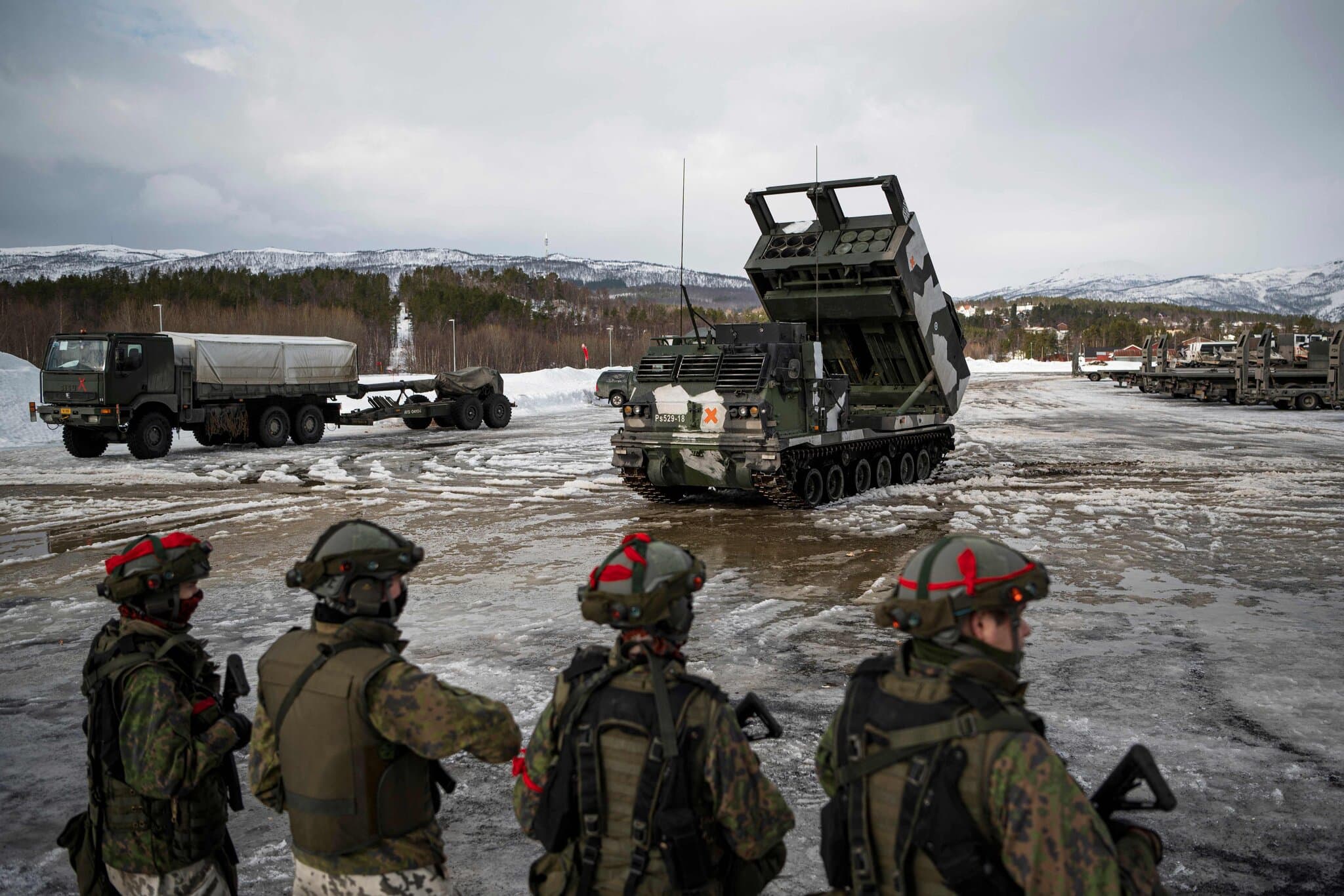We're loading the full news article for you. This includes the article content, images, author information, and related articles.
A top Finnish official has declared the unified Western response to Russia's aggression a critical signal to Beijing. For Kenya, navigating its deep economic ties with both China and the West, the geopolitical shockwaves carry significant weight.

HELSINKI, FINLAND – In a stark warning with global implications, Finland's Defence Minister, Antti Häkkänen, has asserted that a decisive defeat of Russia's invasion of Ukraine is essential to deter potential aggression from China in the Indo-Pacific. Speaking from Helsinki on Monday, 27 October 2025 EAT, Häkkänen stressed that the resilience of the global democratic alliance is under intense scrutiny from Beijing.
“China is watching. Does the West have a muscle and resilience, when the autocrats and dictators think they can wage war for another year, and the democratic countries will become fed up?” Häkkänen stated in an interview. “We have to show that we are even more putting stronger support against violence. It’s not only on Ukraine. It’s against violence, against war, and that’s a signal also for China and the Indo-Pacific area.”
This geopolitical dynamic places nations like Kenya in a complex position. Kenya maintains significant and multifaceted relationships with both Western powers and China. China stands as Kenya's largest trading partner, with bilateral trade reaching substantial figures and Beijing funding critical infrastructure projects like the Standard Gauge Railway (SGR) under its Belt and Road Initiative. Simultaneously, Kenya has robust trade and diplomatic ties with the European Union and the United States, positioning itself as a key partner in East Africa.
The war in Ukraine has already had a tangible impact on Kenya's economy, disrupting supply chains and driving up the cost of essential commodities like fuel, wheat, and fertilizer. These economic pressures have increased the cost of living and posed significant challenges for households and businesses across the country. The conflict has highlighted the vulnerabilities of global interdependence, a reality Kenya navigates daily through its international partnerships.
Finland, which recently joined NATO in 2023 after decades of neutrality, shares a 1,300-kilometer border with Russia and views Moscow as a direct threat. This perspective shapes its urgent call for a strong, united front against Russian aggression. Finland has committed over €2.9 billion in defence materiel to Ukraine and strongly supports EU sanctions against Moscow. The Finnish government advocates a three-pronged strategy: tougher sanctions on Russia's economy, increased military aid to Ukraine, and providing Kyiv with long-range weapons to strike strategic targets.
Kenya and Finland have been strengthening their bilateral ties, with Finnish President Alexander Stubb undertaking a state visit to Nairobi in May 2025. The two nations signed agreements on peace mediation and political consultations, with discussions also focusing on education, climate action, and trade.
Häkkänen’s call for stronger military assistance comes amid a broader international debate on supplying Ukraine with advanced long-range missiles. On Friday, 24 October 2025 EAT, British Prime Minister Keir Starmer hosted a summit in London, urging allies to increase the provision of such weapons to Kyiv. Ukrainian President Volodymyr Zelenskyy has been a vocal advocate for acquiring missiles like the American Tomahawk, arguing they are necessary to strike deep into Russian territory and disrupt military logistics.
However, U.S. President Donald Trump has expressed reluctance, citing the complexity of the weapons and the extensive training required. “The problem with the Tomahawk is... it’ll take a minimum of six months, usually a year, to learn how to use them,” Trump stated on 22 October 2025 EAT. Despite this, his administration has signaled a tougher stance on Russia. On 22 October 2025 EAT, the U.S. Treasury imposed significant sanctions on Russia's two largest oil companies, Rosneft and Lukoil, a move praised by Häkkänen as a sign of American resolve.
While the immediate conflict is in Europe, the strategic implications are global. Finland's warning underscores the interconnectedness of international security. For Kenya, the situation highlights the delicate balancing act required to maintain beneficial relationships with competing global powers. The nation's foreign policy is rooted in principles of non-alignment and multilateralism, often seeking diplomatic solutions to international disputes.
The ongoing war also has direct human consequences for Kenya. In a statement on Monday, 27 October 2025 EAT, Prime Cabinet Secretary Musalia Mudavadi confirmed the government is actively engaging with Moscow to secure the release of Kenyan citizens who were reportedly lured into the conflict under false pretenses. This development adds another layer of complexity to Kenya-Russia relations, even as both nations negotiate a potential Bilateral Labour Agreement.
As the conflict in Ukraine continues, its resolution will undoubtedly shape the future of the international order. Finland's message is clear: the outcome will send a powerful message to nations worldwide, including China. For Kenya and other nations in the region, the challenge lies in navigating the resulting geopolitical shifts while safeguarding their own economic and security interests.
Keep the conversation in one place—threads here stay linked to the story and in the forums.
Sign in to start a discussion
Start a conversation about this story and keep it linked here.
Other hot threads
E-sports and Gaming Community in Kenya
Active 9 months ago
The Role of Technology in Modern Agriculture (AgriTech)
Active 9 months ago
Popular Recreational Activities Across Counties
Active 9 months ago
Investing in Youth Sports Development Programs
Active 9 months ago